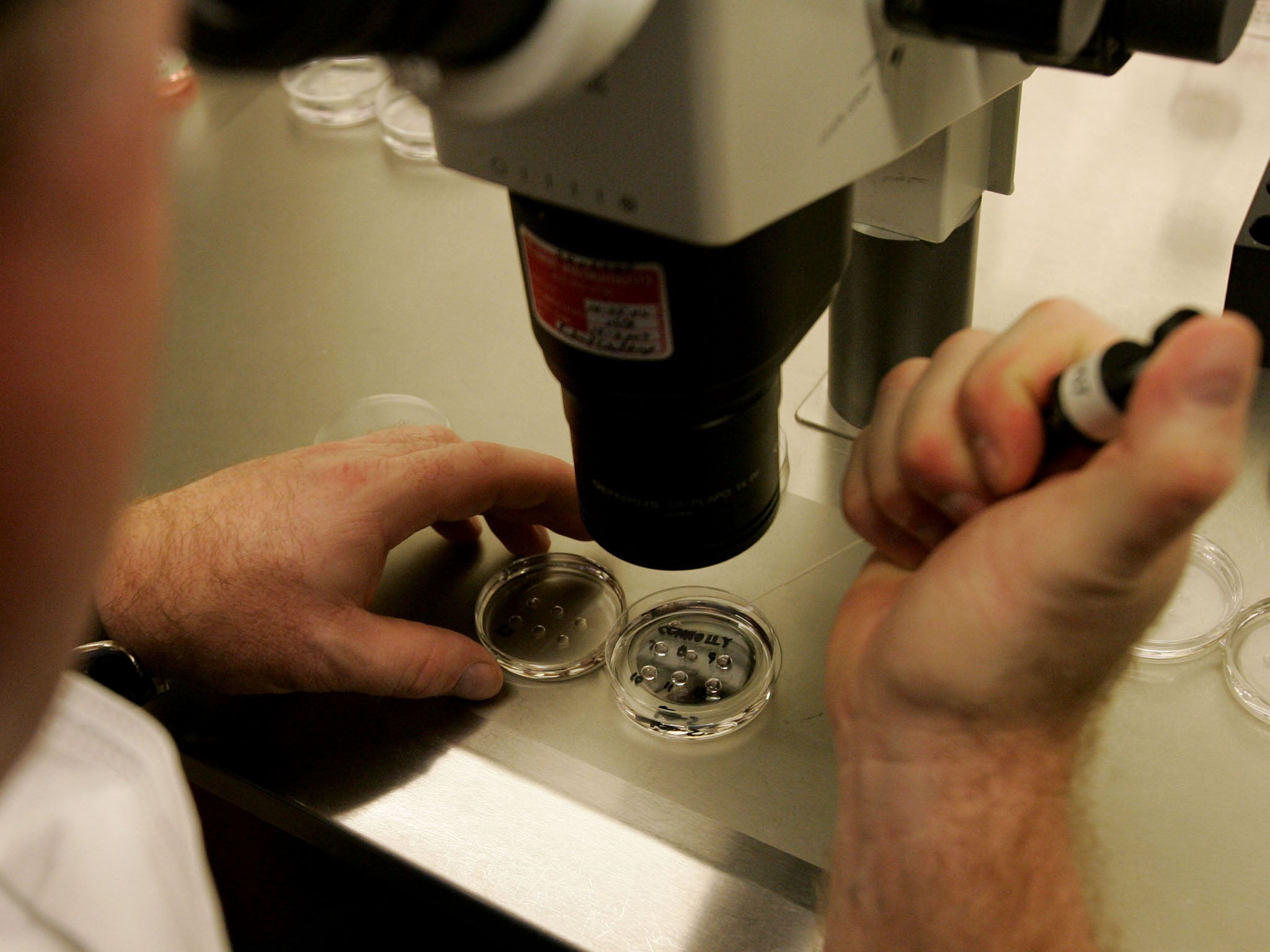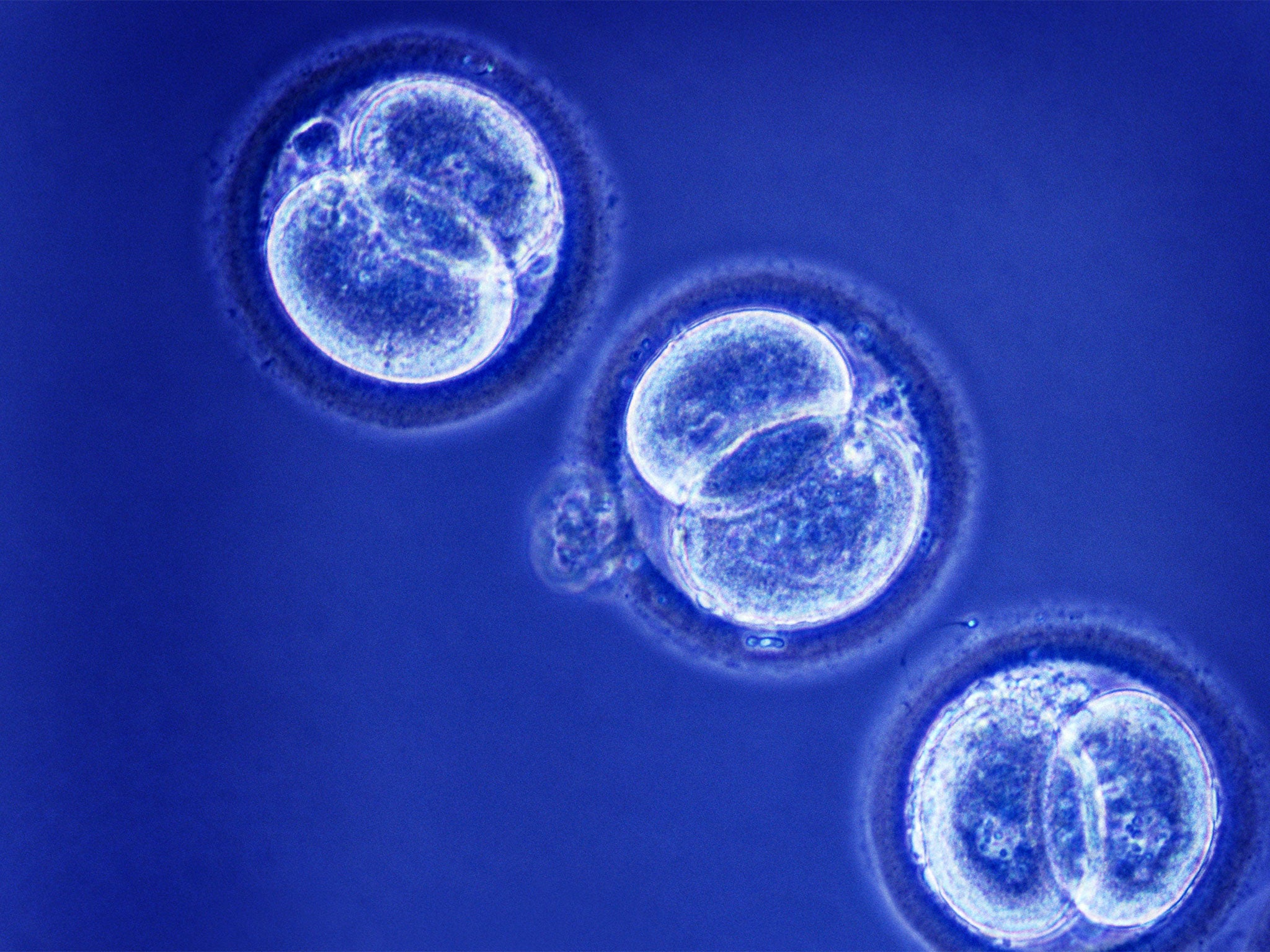Church of England warnings over 'three-parent babies'
Church's adviser on medical ethics says it 'does not feel that there has been sufficient scientific study into the ethics, safety and efficacy of mitochondria transfer'

Your support helps us to tell the story
From reproductive rights to climate change to Big Tech, The Independent is on the ground when the story is developing. Whether it's investigating the financials of Elon Musk's pro-Trump PAC or producing our latest documentary, 'The A Word', which shines a light on the American women fighting for reproductive rights, we know how important it is to parse out the facts from the messaging.
At such a critical moment in US history, we need reporters on the ground. Your donation allows us to keep sending journalists to speak to both sides of the story.
The Independent is trusted by Americans across the entire political spectrum. And unlike many other quality news outlets, we choose not to lock Americans out of our reporting and analysis with paywalls. We believe quality journalism should be available to everyone, paid for by those who can afford it.
Your support makes all the difference.The Church of England is opposed to a Bill that would allow so-called “three-parent babies”, according to a report.
MPs are due to vote on an amendment to the Human Fertilisation and Embryology Act 2008 next week that would allow the replacement of an egg’s defective mitochondrial DNA with healthy DNA from a female donor.
This would prevent children from inheriting conditions such as muscular dystrophy. It is thought that nearly 2,500 British women with genetic mutations in their mitochondria could benefit from the technique.
However the Church of England said it felt that more research needed to be done, The Daily Telegraph reported.
Rev Dr Brendan McCarthy, the Church of England’s national adviser on medical ethics, said: “The Archbishops Council, which monitors this issue, does not feel that there has been sufficient scientific study or informed consultation into the ethics, safety and efficacy of mitochondria transfer.
“Without a clearer picture of the role mitochondria play in the transfer of hereditary characteristics, the Church does not feel it would be responsible to change the law at this time.”
Sir Tony Baldry, who speaks for the Anglican Church in the House of Commons, added: “The House is going to in due course have to consider some difficult issues both about start of life and end of life.

“The Church of England accepts that embryo research is permissible if it’s undertaken to alleviate human suffering.
“But there are concerns that there has been insufficient scientific study or informed consultation into the ethics of mitochondria transfer, not least the role mitochondria play in the transfer of hereditary characteristics.”
In November, two senior science advisers insisted that the medical benefits of creating three-parent babies were likely to outweigh any risks.
Professors Robin Lovell-Badge and Peter Braude, who both sit on an expert panel advising the Human Fertilisation and Embryology Authority (HFEA), said doubts over the safety of mitochondrial transfer were misplaced.
“For couples with mitochondrial DNA mutations, there are no alternatives that allow the couple to have genetically related children free of mitochondrial disease,” the two professors wrote in a joint letter to an American colleague.
“No medical first-in-man technique is ever without risk, whether this be heart or kidney transplants, or the first IVF or the first embryo biopsy for pre-implantation genetic diagnosis. The risk of treatment must be balanced against the certainty of adverse outcome without.”
Join our commenting forum
Join thought-provoking conversations, follow other Independent readers and see their replies
Comments